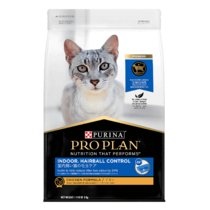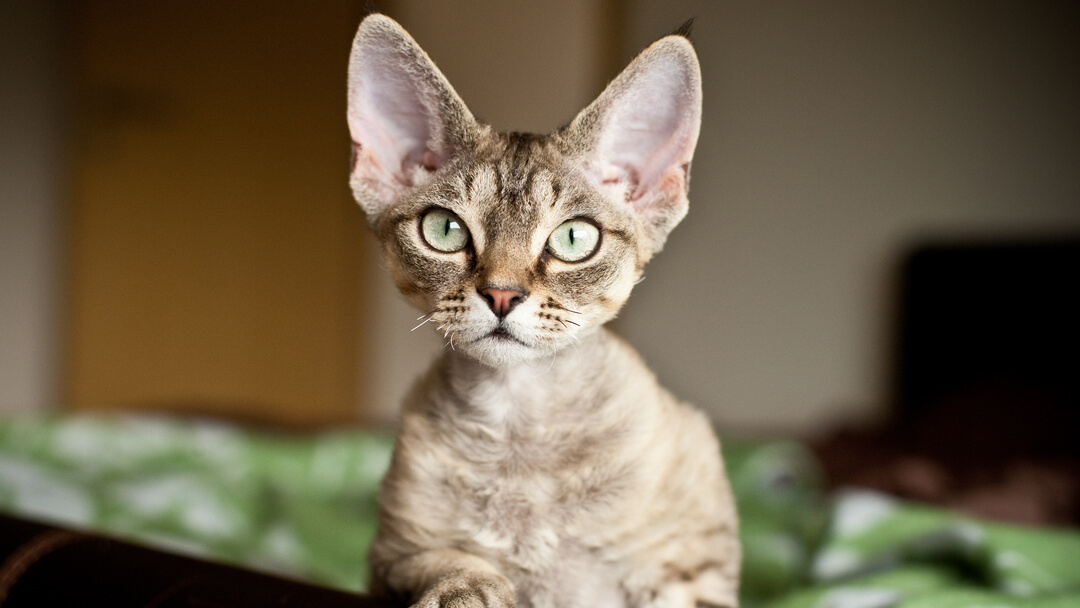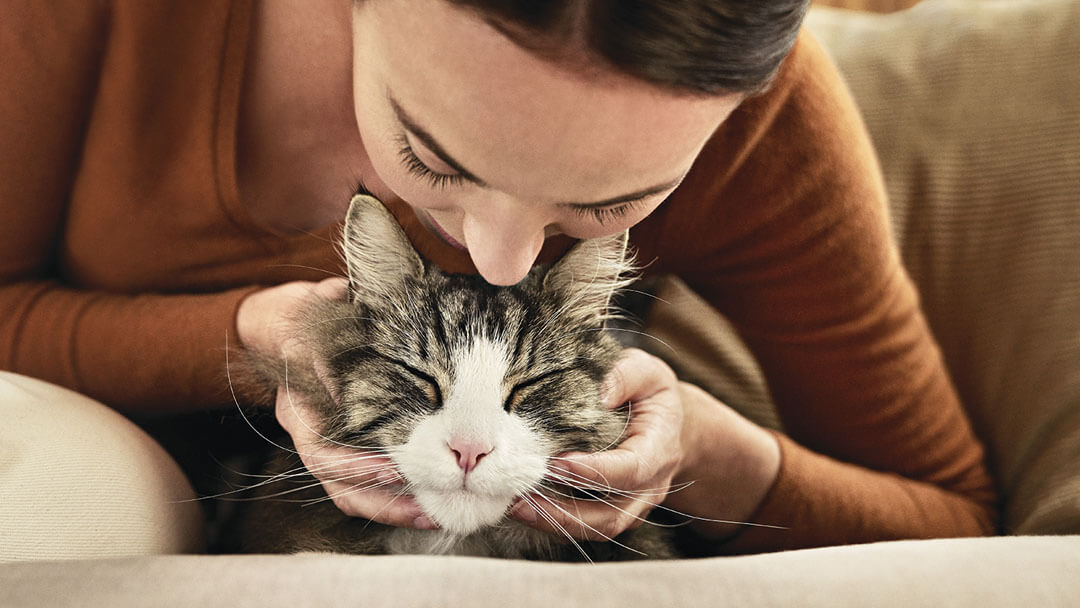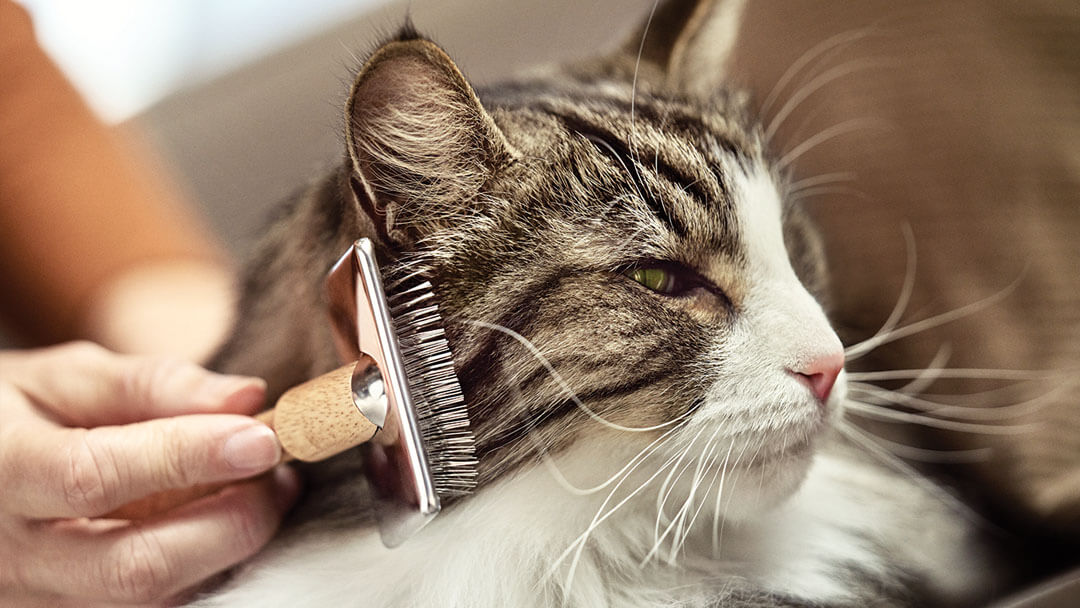

When it comes to living with a cat allergen sensitivity, it’s not easy, but it doesn’t have to be all or nothing.
Some of the practices and advice you may find suggested online aren’t feline-friendly and can negatively affect your relationship with your cat. For example, bathing your cat can be a really stressful experience, for both of you.
Although bathing will lower the levels of allergens present on your cat's hair, the effect is short-lived with the levels returning to baseline within 24 hours of bathing. Similarly, keeping a cat outside, particularly one that has been used to living indoors or keeping them restricted to a certain part of the house, can also result in increased levels of stress for them.
Love finds a way and there are safe, easy and feline-friendly steps you can take to help manage cat allergens in your home, while also maintaining your close bond with your cat.
Our homes should be our sanctuary, but for 1 in 5 of us who are sensitive to cat allergens¹,², the home environment isn’t always so safe and relaxing.
Up to 95% of people sensitised to cat allergens are affected by Fel d 1, a protein produced by cats mainly in their salivary and sebaceous glands.
Every cat produces Fel d 1, regardless of breed, age and gender and there are no such thing as truly ‘hypoallergenic’ cats. As all feline lovers know, every cat is unique, and the levels of Fel d 1 they produce varies – just as every person's sensitivity level to these allergens is different.
There’s no ‘one size fits all’ way to manage exposure to cat allergens. Every little bit helps so a combination of management tools often works best to help reduce allergens in your home. The key is maintaining consistency with your routine.
PRO PLAN® LIVECLEAR™ is a new tool offering extra help in minimising the cat allergens in your home – it is not intended to replace other management practices but complement existing routines.
8 simple steps for managing cat allergens at home
Here are 8 simple steps to help introduce PRO PLAN® LIVECLEAR™ into your overall management routine and make it more feline-friendly.
-
Introduce PRO PLAN® LIVECLEAR™ into their diet.
As with any new cat food, introduce PRO PLAN® LIVECLEAR™ to your cat by gradually mixing it in with their old food over 7-10 days to avoid dietary upsets. -
Clean your home to remove traces of Fel d 1.
Clean your home by using a damp cloth to remove sticky Fel d 1 allergens. Limit the amount of chemical detergents you use, as scent is important for your cat to feel at home. -
Groom your cat outdoors.
Get your cat used to being groomed outdoors, away from soft furnishings. Wipe them with a damp cloth or anti-allergen wipes to remove allergens from their coat. -
Follow hygiene practices when handling your cat.
Avoid letting your cat lick your skin or clothes, and always wash your hands after petting them. -
Step up your vacuum use.
Vacuum regularly. It’s recommended using a vacuum cleaner with a HEPA filter if possible. -
Increase the air flow in your home.
Ventilate your home by opening windows and/or doors, alternatively you can use an air purifier. -
Split the daily feed of PRO PLAN® LIVECLEAR™ into 2–3 meals.
It’s important that your cat eats the food at different points in the day as the neutralising action happens in your cat’s mouth. If the cat grazes throughout the day on its food, that’s acceptable, as long as the full amount of PRO PLAN® LIVECLEAR™ is consumed. PRO PLAN® LIVECLEAR™ needs to be your cat’s primary source of food each day, but you can add the occasional wet food or treat to keep them extra happy. Make sure your cat always has access to clean, fresh water. -
Continue feeding PRO PLAN® LIVECLEAR™.
To sustain the benefits, feed PRO PLAN® LIVECLEAR™ daily and store the food in a cool, dry place away from sun and heat. If you stop feeding PRO PLAN® LIVECLEAR™, the allergen-reduction effect will stop, so we always recommend keeping a healthy stock in your cupboards.
If you need any further help, please feel free to contact our friendly Pet Care team.
Featured products
Related articles













